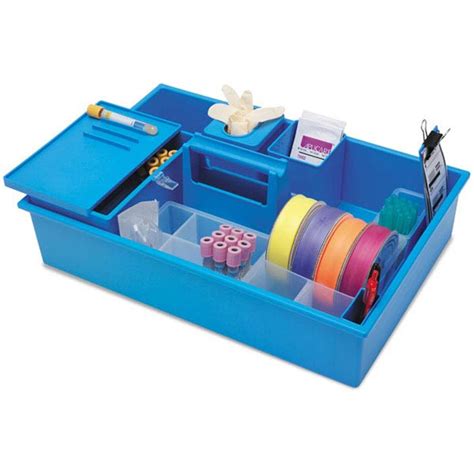Ultimate Guide to Phlebotomist Qualifications: Skills, Certifications, and Career Requirements
If you’re considering a career in healthcare, becoming a phlebotomist can be both fulfilling and in-demand. Phlebotomists are essential members of medical staff, responsible for drawing blood and preparing samples for testing. This extensive guide will walk you through the required skills, necessary certifications, and what it takes to succeed in this dynamic healthcare profession.
Introduction
The role of a phlebotomist might seem straightforward-drawing blood samples from patients-but it requires specific skills, certifications, and a strong understanding of healthcare protocols. With hospitals, clinics, laboratories, and diagnostic centers constantly seeking qualified professionals, this career offers excellent job stability and growth opportunities. Whether you are just starting or looking to enhance your qualifications, understanding the essentials of becoming a certified phlebotomist is key to a successful career.
Key Skills and Qualities of a Successful Phlebotomist
To excel as a phlebotomist, possessing the right skills and personal qualities is vital. These attributes ensure patient safety, accurate sample collection, and a smooth workflow.Here are some critical skills every aspiring phlebotomist should develop:
Essential Skills for Phlebotomists
- Attention to Detail: Precise identification and labeling of samples prevent errors.
- Excellent Hand-Eye Coordination: Steady hands are crucial for safe blood draws.
- Interpersonal Skills: Being compassionate and professional helps ease patient anxiety.
- Strong Communication: Explaining procedures clearly and answering patient questions.
- Physical Dexterity and Stamina: ability to perform multiple draws and stand for hours.
- Knowledge of Safety Protocols: Ensuring proper infection control and disposal of sharps.
- Problem-Solving Abilities: Handling arduous veins or patient distress effectively.
educational and Training Requirements for Phlebotomists
While some entry-level roles may accept on-the-job training, most employers prefer candidates with formal education and certified training programs. Here’s what you need to get started:
Educational Background
- High school diploma or GED equivalency is the minimum requirement.
- Some colleges and vocational schools offer diploma or certificate programs focusing on phlebotomy.
Phlebotomy Training Programs
Structured training programs typically cover:
- Human anatomy and physiology
- Blood collection techniques
- Safety and infection control
- Patient interaction and communication
- Legal and ethical considerations
Training duration varies from a few weeks to several months, depending on the program and intensity.
certifications and Licensing for Phlebotomists
Obtaining certification enhances credibility, job prospects, and frequently enough is a requirement for employment. Several certifying agencies set the standards for professional phlebotomists:
Major Phlebotomy Certification Organizations
| Organization | certification Name | Requirements |
|---|---|---|
| American Society for Clinical Pathology (ASCP) | Certified Phlebotomy Technician (CPT) | Completion of approved training program & passing exam |
| National Phlebotomy Association (NPA) | Certified Phlebotomy Technician (CPT) | high school diploma & clinical experience or training |
| American Medical Certification Association (AMCA) | Certified Phlebotomy Technician (CPT) | Completed training & passed certification exam |
State Licensing and regulations
Requirements vary by state; some states mandate license to practice as a phlebotomist, while others only require certification. Always verify local regulations before pursuing certification or employment.
Career Path and Advancement Opportunities
starting as a certified phlebotomist can lead to numerous career growth opportunities. Experienced professionals can move into roles such as:
- Laboratory Technicians
- Medical Assistants
- Phlebotomy Supervisors or Trainers
- Senior Laboratory Technologists
- specialized Medical Fields (e.g., outpatient clinics, diagnostic imaging)
Further education and specialized certifications can open doors to management positions and niche roles within healthcare.
Benefits of becoming a Certified Phlebotomist
- High Demand: The healthcare industry continually needs qualified blood collection specialists.
- Relatively Short Training Period: Fast track to a rewarding career.
- Job Stability: Consistent demand across healthcare facilities.
- Competitive Salary: Entry-level salaries are attractive, with potential for growth as you gain experience.
- Personal Fulfillment: Making a direct difference in patient health and care.
Practical Tips for Aspiring phlebotomists
- Accumulate Hands-On Experience: volunteer or seek internships to build confidence.
- Stay Certified and Updated: Continuing education ensures you remain compliant and knowledgeable.
- Develop Soft Skills: Empathy,patience,and good communication are vital.
- Network Professionally: Join associations like NPA or ASCP for support and job leads.
- Maintain Professionalism: Always prioritize patient safety and privacy.
Case Study: From Novice to Certified Phlebotomist
Jane Doe, a high school graduate, enrolled in a local phlebotomy certification course and completed a 4-week training program. After passing her certification exam, Jane secured a position at a community clinic. Over the next two years, she gained experience in various blood collection techniques and earned additional certifications in venipuncture procedures. Today, Jane is a senior phlebotomy technician, mentoring new staff and exploring specialization options in pediatric phlebotomy.
Conclusion
Becoming a certified phlebotomist is a rewarding decision for those interested in healthcare careers that combine medical skills with patient interaction. By developing essential skills, completing formal training, and obtaining industry-recognized certifications, you can build a stable and fulfilling career in this vital healthcare sector. Remember, continuous learning and a compassionate approach will not only advance your career but also make a meaningful difference in patients’ lives.
